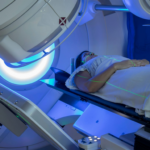
Esophagus cancer, though less common than other types of cancer, poses significant challenges due to its location and the critical functions of the esophagus in digestion. Radiation therapy stands as a pivotal treatment modality in the comprehensive approach to managing esophagus cancer. This therapy utilizes high-energy rays to target and destroy cancer cells while minimizing damage to surrounding healthy tissue. Here’s a detailed look at the benefits of radiation therapy in esophagus cancer treatment.
How Radiation Therapy Works
Radiation therapy works by delivering focused beams of radiation to the tumor site. These beams are designed to disrupt the DNA of cancer cells, preventing their ability to grow and divide. Depending on the stage and location of the cancer, radiation therapy can be administered externally (external beam radiation therapy) or internally (brachytherapy), where radioactive sources are placed directly inside or near the tumor.
Benefits of Radiation Therapy
- Localized Treatment: Radiation therapy allows for precise targeting of the cancerous cells, minimizing damage to nearby healthy tissues such as the lungs and heart, which are close to the esophagus.
- Complementary Treatment: Often used in conjunction with surgery and chemotherapy, radiation therapy helps to shrink tumors before surgery, making them easier to remove, or after surgery to destroy remaining cancer cells.
- Pain Relief: For patients experiencing pain due to the tumor pressing on nearby structures or nerve endings, radiation therapy can provide significant relief by reducing the size of the tumor.
- Improved Swallowing: Esophagus cancer can impair swallowing, causing difficulty in eating and drinking. Radiation therapy can shrink tumors obstructing the esophagus, thereby improving swallowing function.
- Non-Invasive Option: In cases where surgery might be too risky due to the patient’s overall health condition, radiation therapy offers a non-invasive alternative with fewer associated risks.
- Effective Against Residual Cancer Cells: Even after surgery, microscopic cancer cells may remain. Radiation therapy targets these residual cells, reducing the risk of cancer recurrence.
- Customized Treatment Plans: Each patient’s treatment plan is customized based on their specific condition, including the size and location of the tumor, overall health, and previous treatments received.
Side Effects and Management
While radiation therapy is highly effective, it can also cause side effects such as fatigue, difficulty swallowing, skin changes at the radiation site, and, in rare cases, damage to nearby organs. However, these side effects are carefully monitored and managed by healthcare providers to ensure the patient’s comfort and well-being throughout treatment.
Summary
In summary, radiation therapy plays a crucial role in the treatment of esophagus cancer by targeting cancer cells with precision while sparing healthy tissues. Dr. Jagdish Shinde, located in Pimple Saudagar, Pune, is renowned as the best onco radiologist in Pune, specializing in providing comprehensive radiation therapy solutions for cancer patients.
Radiation therapy offers hope and effective outcomes for patients battling esophagus cancer, contributing significantly to their quality of life and long-term survival. For more information on cancer treatment options and consultations, visit Cancer Care Pune.




